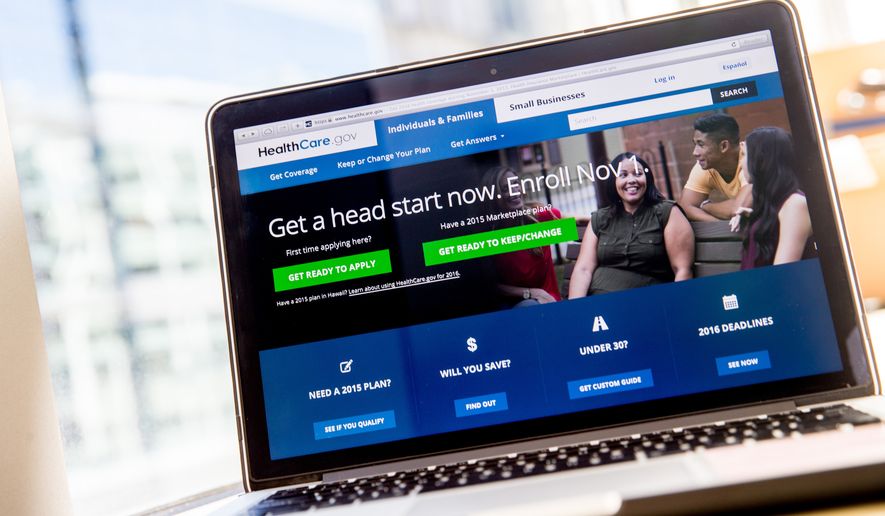The Trump administration called for cutting Obamacare’s next enrollment period in half as it took the first steps Wednesday to “stabilize” the health insurance marketplace, trying to give insurers some certainty even as Republicans try to figure out a repeal-and-replace strategy.
Republicans say the changes are needed to shore up markets beset by rising premiums and dwindling choices.
Major insurer Humana announced this week that it will pull out of the marketplace at the end of this year, and the CEO of Aetna, another big player, said the Affordable Care Act “is in a death spiral.”
“I think you will see a lot more withdrawals this year,” Mark Bertolini said at a Wall Street Journal forum Wednesday. “There isn’t enough money in the ACA today as it’s structured, even with its fees and taxes, to support the population that needs to be served.”
With companies already skittish, the Trump administration said they needed more certainty about who could apply and when.
The Centers for Medicare and Medicaid Services said customers who are behind on their premiums can’t re-enroll next year. It also wants consumers to have to prove extenuating circumstances if they sign up outside of the shorter open-enrollment period.
Insurers say too many people, rather than paying premiums over time, have been able to sign up once they become sick and rack up costly bills.
Democrats blame Republicans for the chaos because of its murky strategy for replacing Obamacare.
They said the moves to tighten enrollment place insurers ahead of patients. Democrats say their preferred solution to repair Obamacare includes more generous subsidies and a government-run “public option” to compete with private plans.
“If the Trump administration and congressional Republicans truly wish to inject greater stability into the health insurance market, they ought to abandon their schemes to repeal the Affordable Care Act without replacing it,” said House Minority Leader Steny H. Hoyer, Maryland Democrat.
Republicans say the sorry state of the initiative left them no choice but to prop up the 2010 Affordable Care Act before killing it so there isn’t more chaos during the handoff.
“This is their problem. We are trying to repair the damage and to provide relief,” said Sen. John Barrasso, Wyoming Republican.
Hoping to entice young, healthy enrollees who have shirked Obamacare, Mr. Trump’s rule said insurers should be able to offer plans with slightly lower premiums and bigger deductibles.
A bigger fight looms over which services insurers are forced to cover.
Senate Republicans met Wednesday with Health and Human Services Secretary Tom Price, and though they emerged with few details, they said the Trump administration is “fully engaged” in the joint effort.
“They’re not forgetting about it. They’re not walking away from it, but they’re going to work with us to make sure that we have the votes necessary to get it across the finish line,” said Sen. Mike Rounds, South Dakota Republican.
The Republican replacement will likely include a transition phase, so insurers and other stakeholders are still planning for a 2018 enrollment season under the law.
The Trump administration proposal will allow enrollments from Nov. 1 to Dec. 15 — half the time of the sign-up period, from Nov. 1 to Jan. 31.
The Centers for Medicare & Medicaid Services said it wanted to prevent customers from signing up for care they needed at the beginning of the year and then dropping out.
The changes also would give insurers an extra month of premium payments, “and it’s fairly consistent with how other programs work,” said Timothy Jost, a law professor at Washington and Lee University who closely tracks the health care debate. “It’s not a revolutionary change, but I think the big question is whether they will push enrollment and let people know it’s a shorter period, so you’d better get in there.”
• Tom Howell Jr. can be reached at thowell@washingtontimes.com.




Please read our comment policy before commenting.